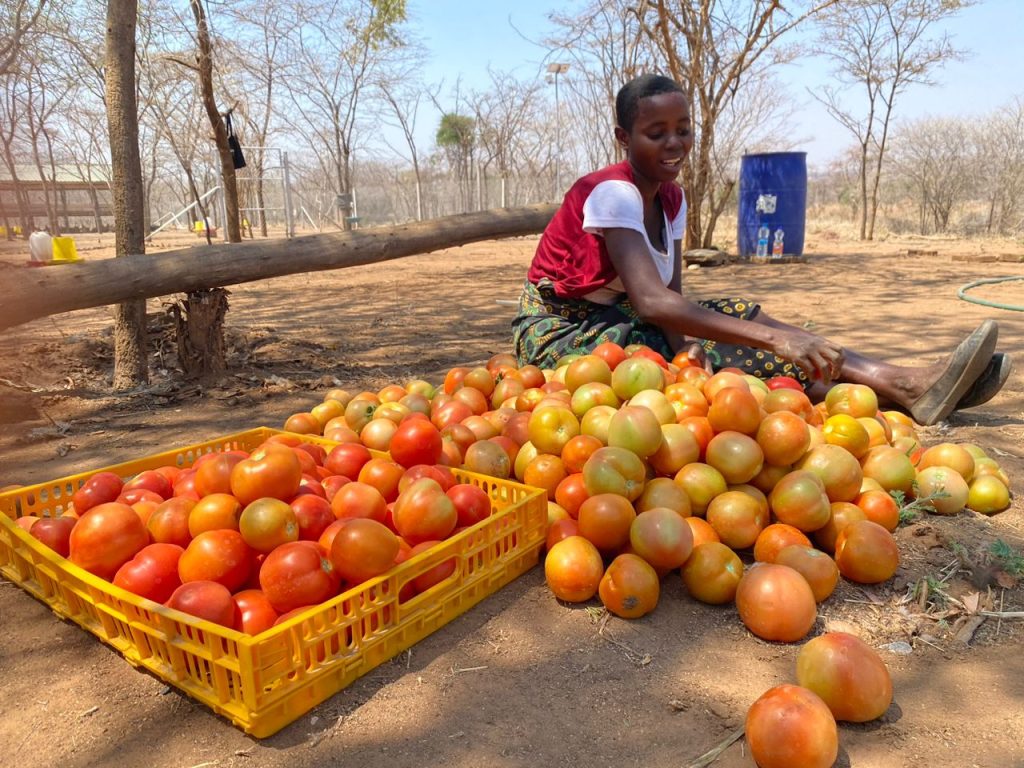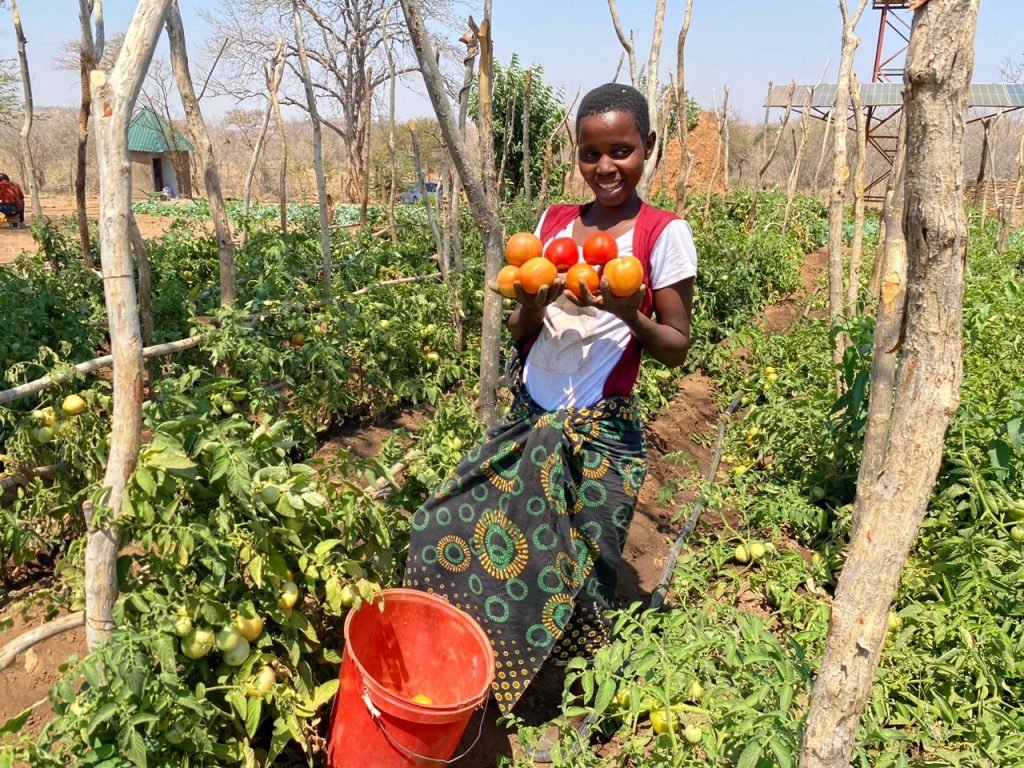“My name is Rinda Mweember, I am 27 years old and a mother of four from Hachibbubba village. I am part of a group of 21 young people involved in chicken rearing at the chicken center that was created by the YILWASH project.
When the borehole was built at the center, we had easy access to water. Together, we decided to start a small garden inside the center and planted tomatoes and rape. At first, we didn’t take gardening very seriously — we thought it was only to give us food while working. But this has changed.
The tomatoes you see in this photo are from our very first harvest. With technical guidance from the project team and extension officers, we were able to grow big, healthy tomatoes. We even sold five crates in Chirundu district and earned K1,500. For us, this was a huge success and we couldn’t believe farming could bring such results.

Now, we sell some of our produce to the community and use the rest for meals. This has not only given us income to support our families but has also helped us keep away from negative behaviors like charcoal burning. Farming has given us confidence, purpose, and hope for the future. I am proud to be part of this journey.”
Youth Integrated Livelihoods and WASH (YILWASH) Project aims to strengthen the resilience of youth and children in Chirundu and Siavonga Districts of Zambia by improving access to safe water, sanitation, and hygiene services while creating livelihood opportunities.
With support from German Cooperation and Stiftung Kinderzukunft, the project benefits approximately 2,631 direct participants and more than 15,000 indirect beneficiaries. Key interventions include:
- Installation of solar-powered boreholes to increase access to safe water.
- Promotion of hygiene practices in schools and communities.
- Establishment of youth groups engaged in poultry farming, gardening, and other income-generating activities.
- School feeding initiatives to support education continuity.
The project integrates livelihoods and WASH services to build healthier, more self-reliant, and climate-resilient communities.

